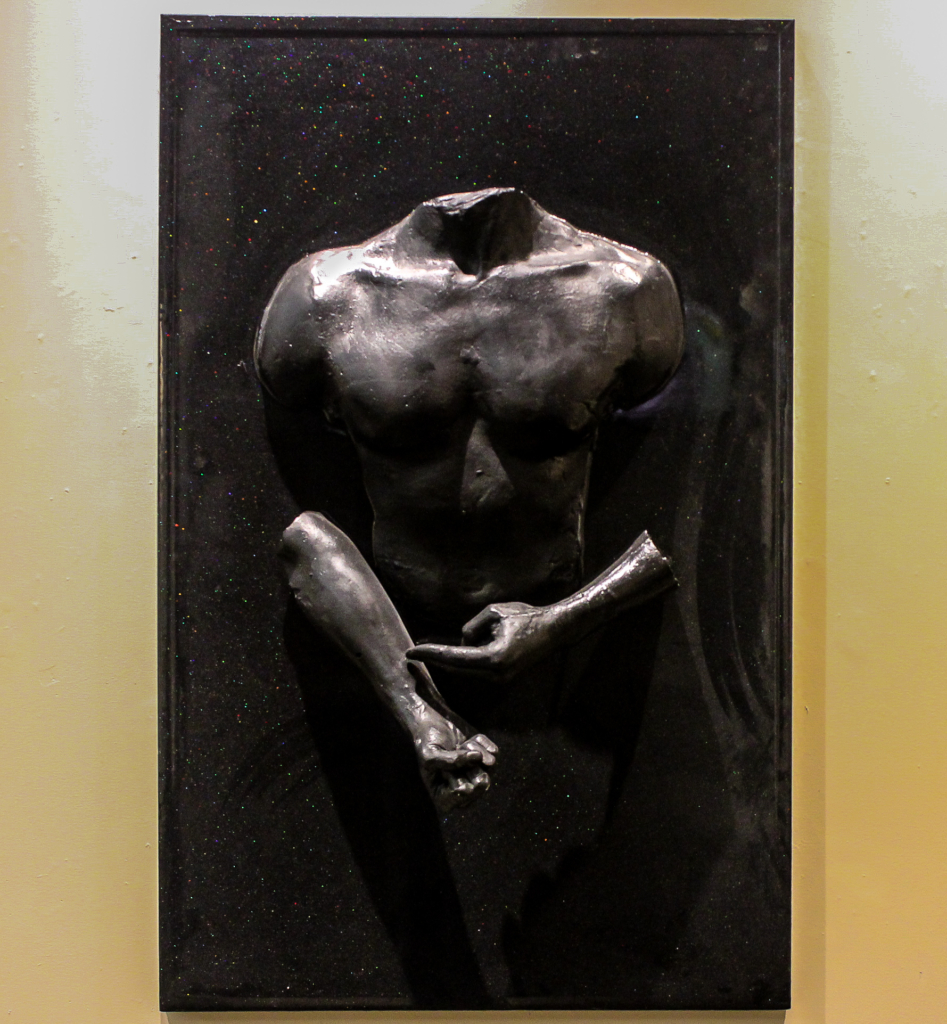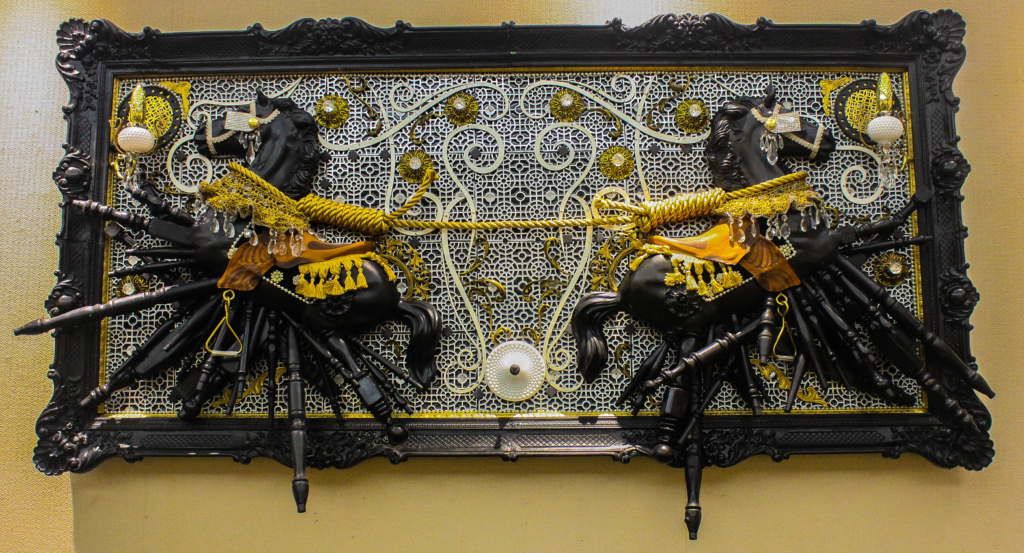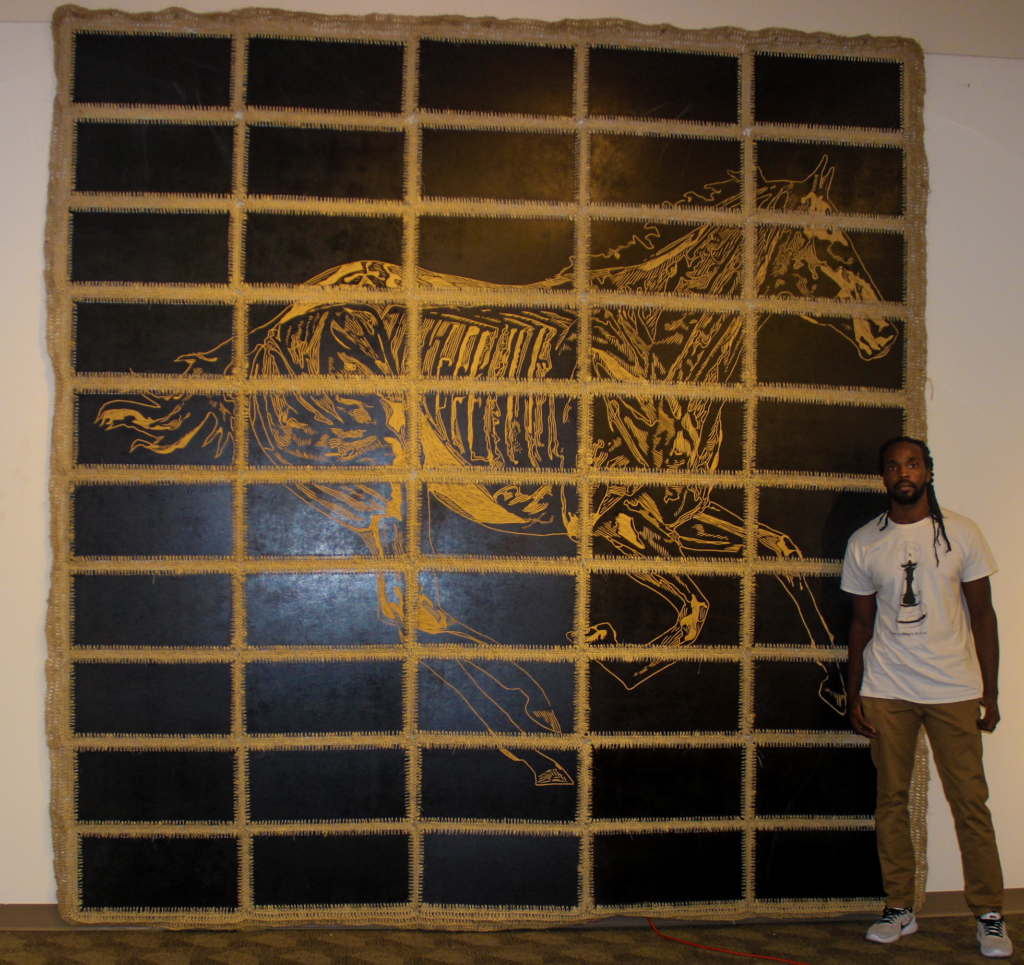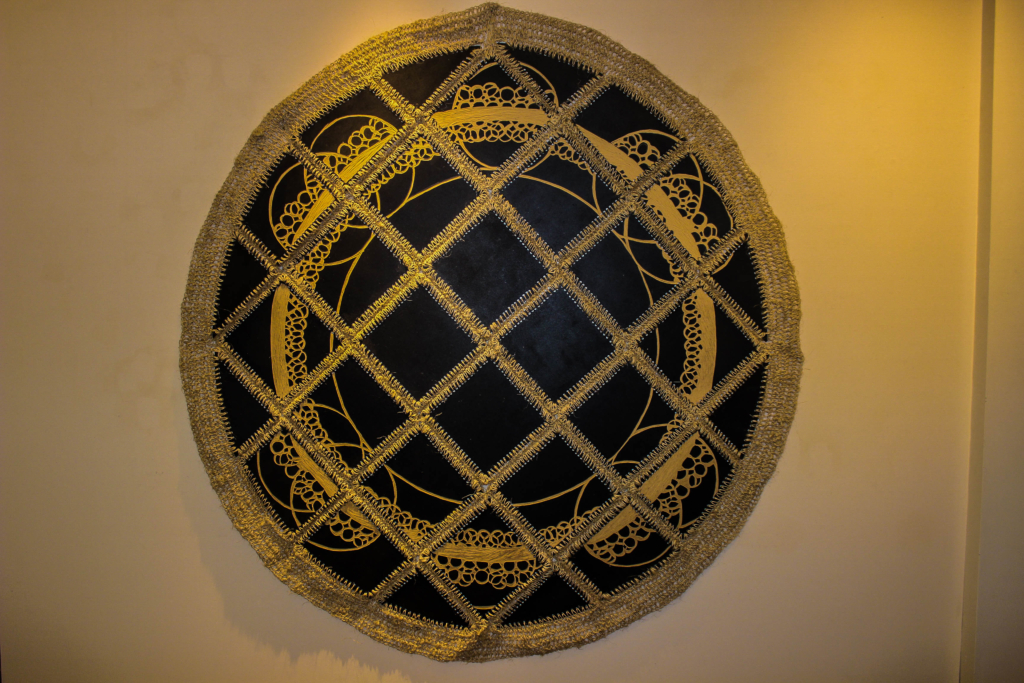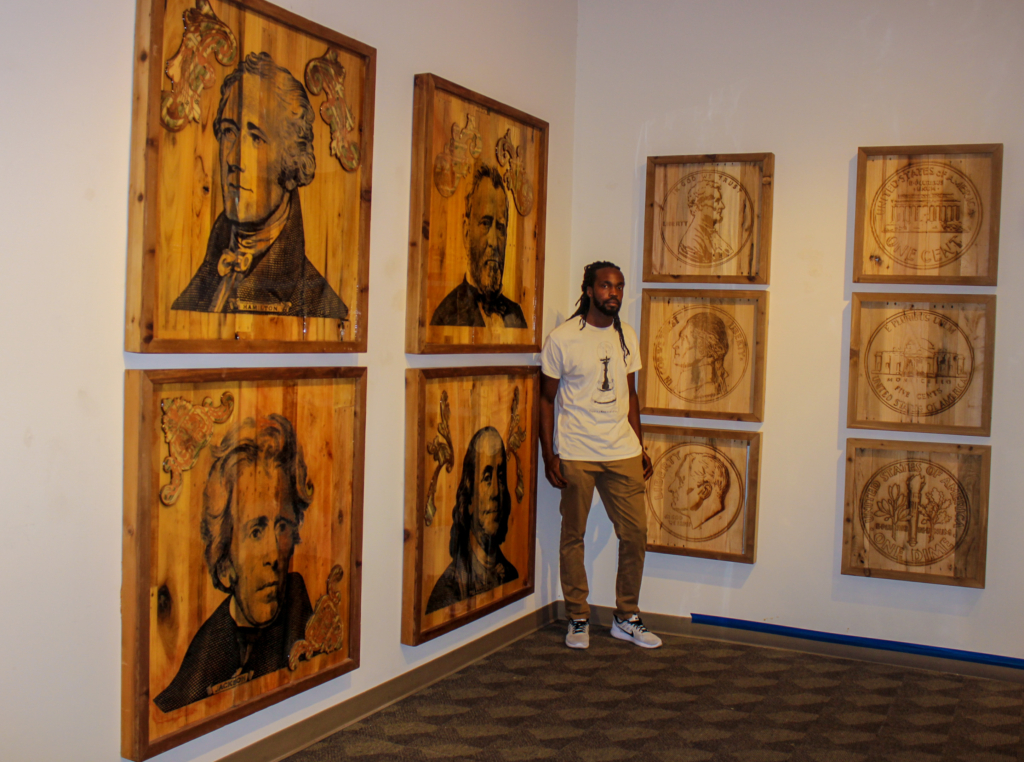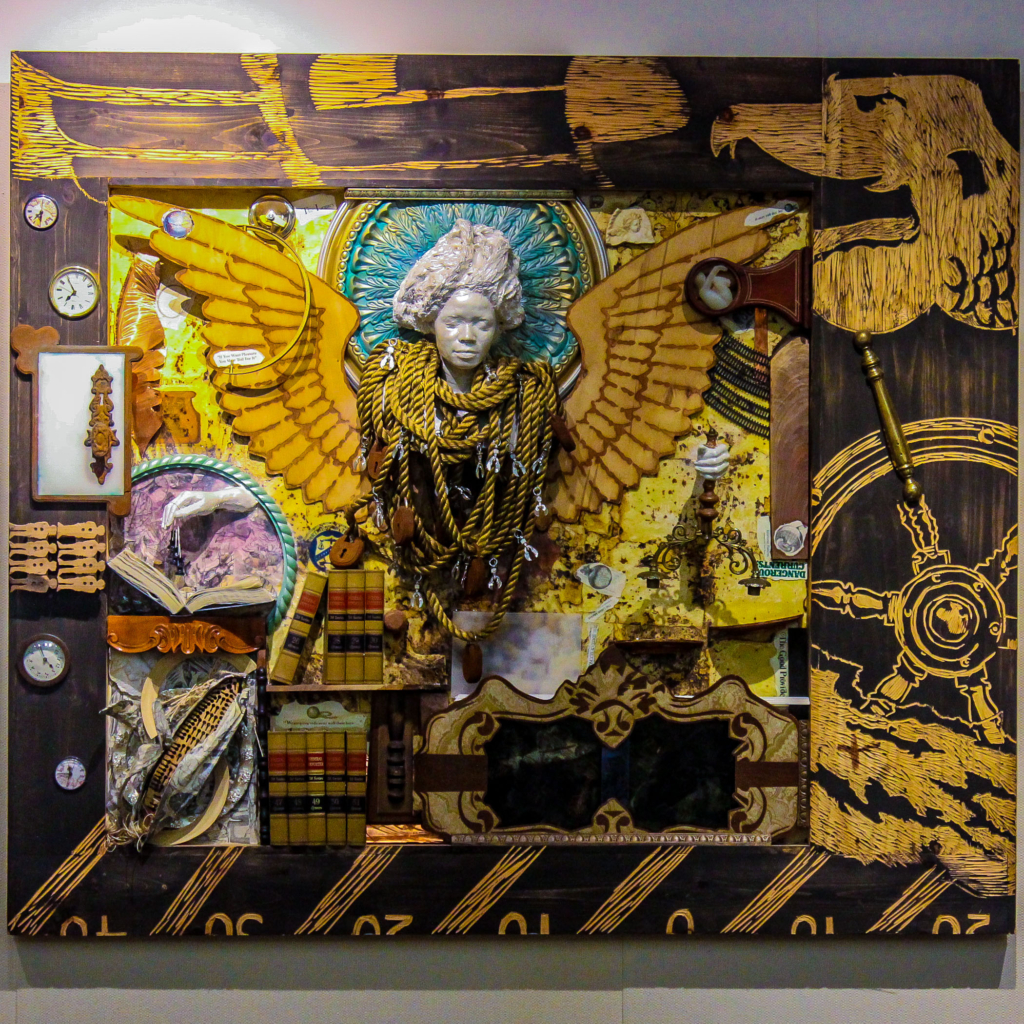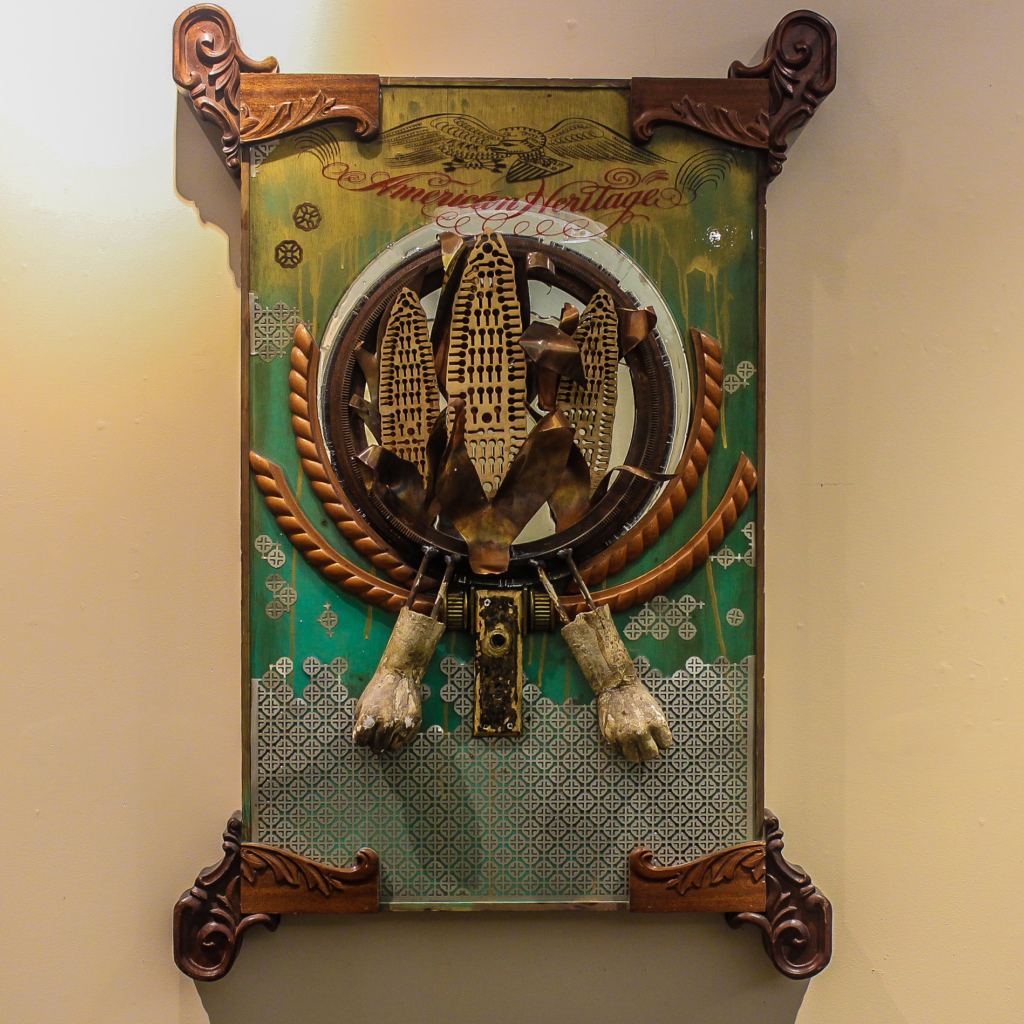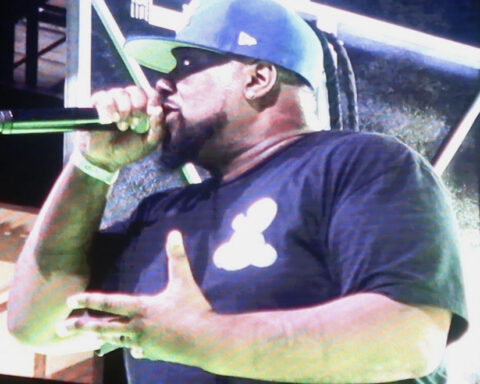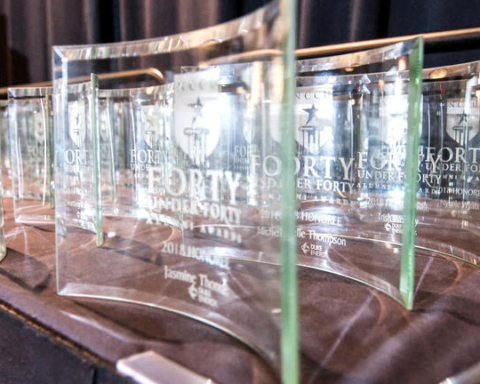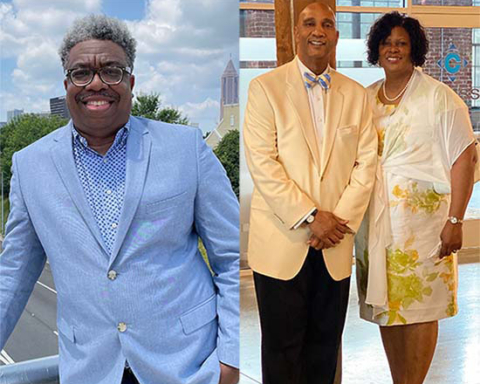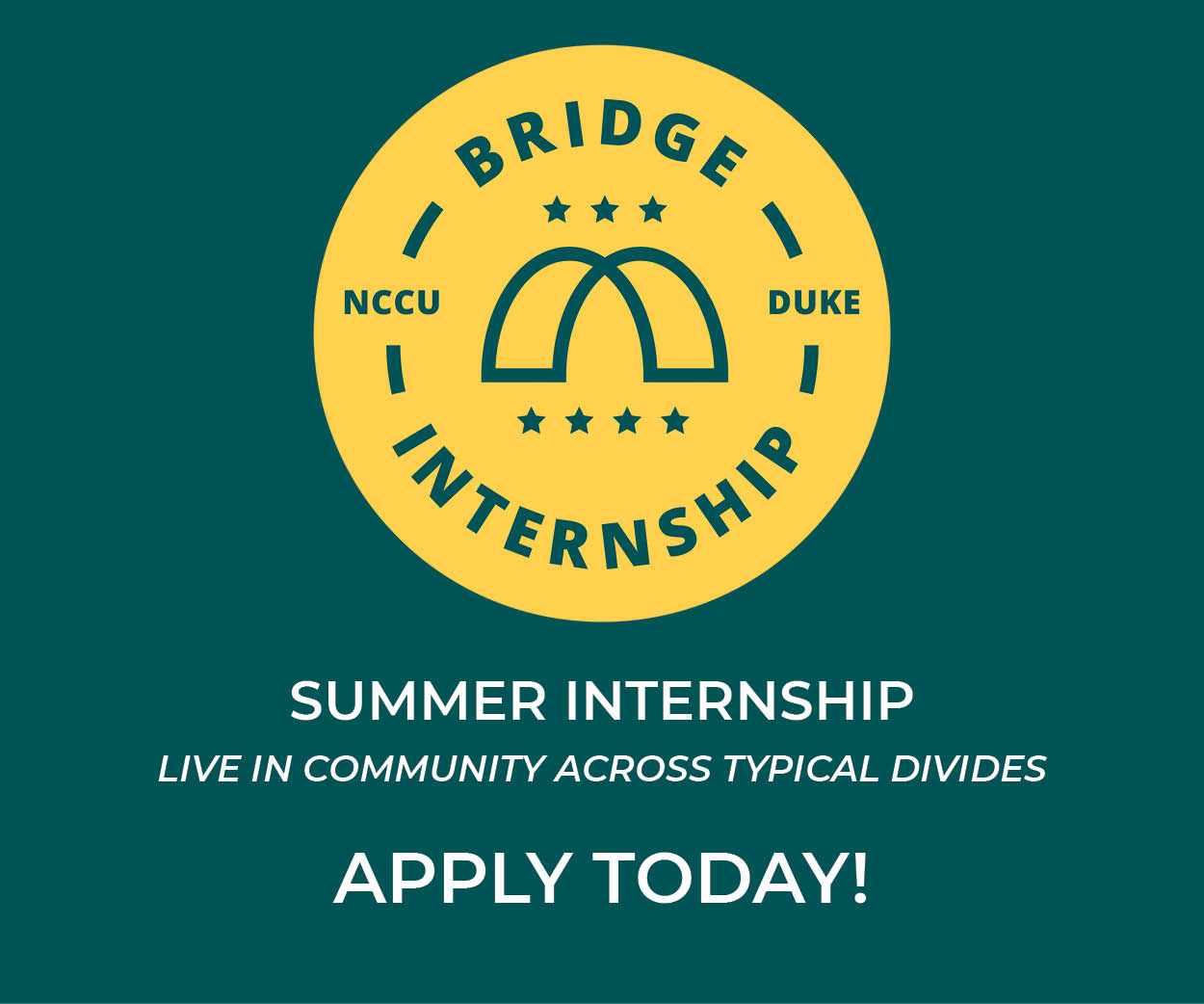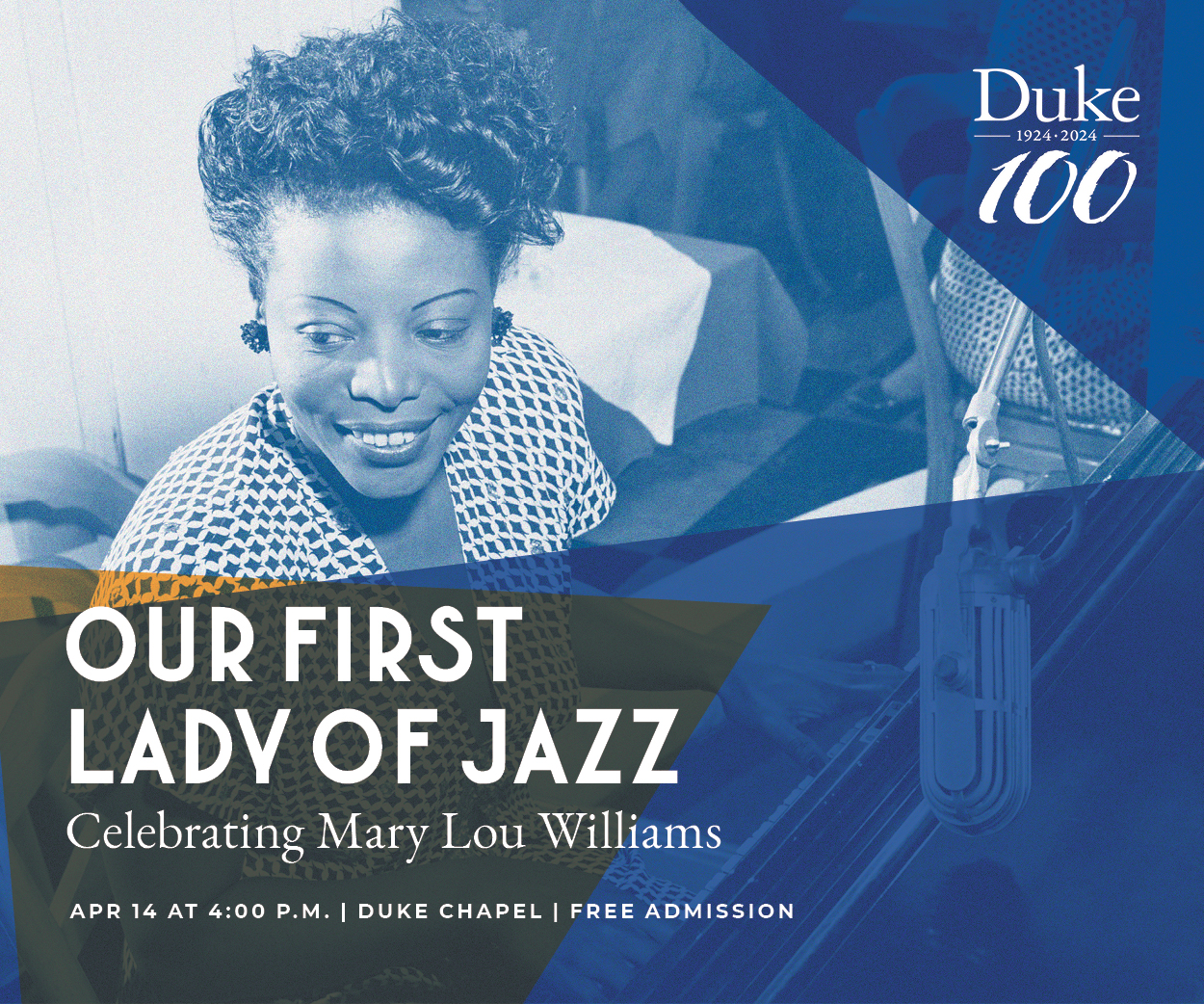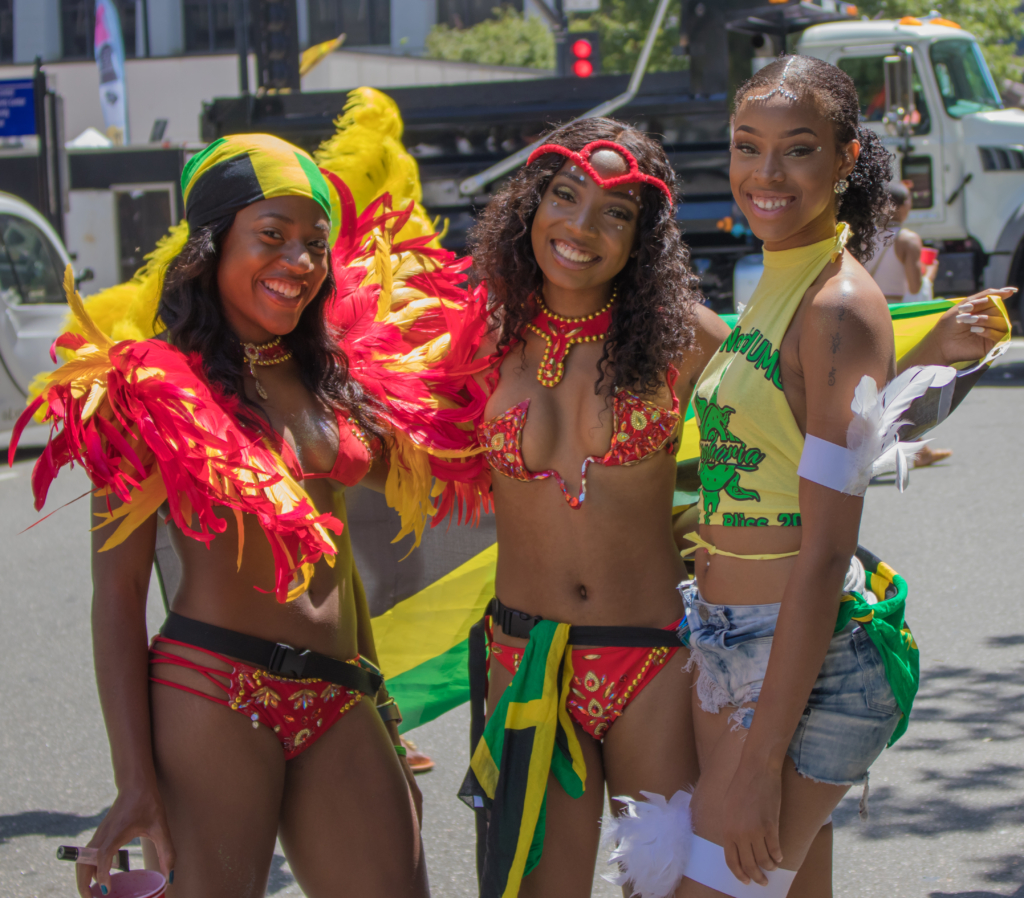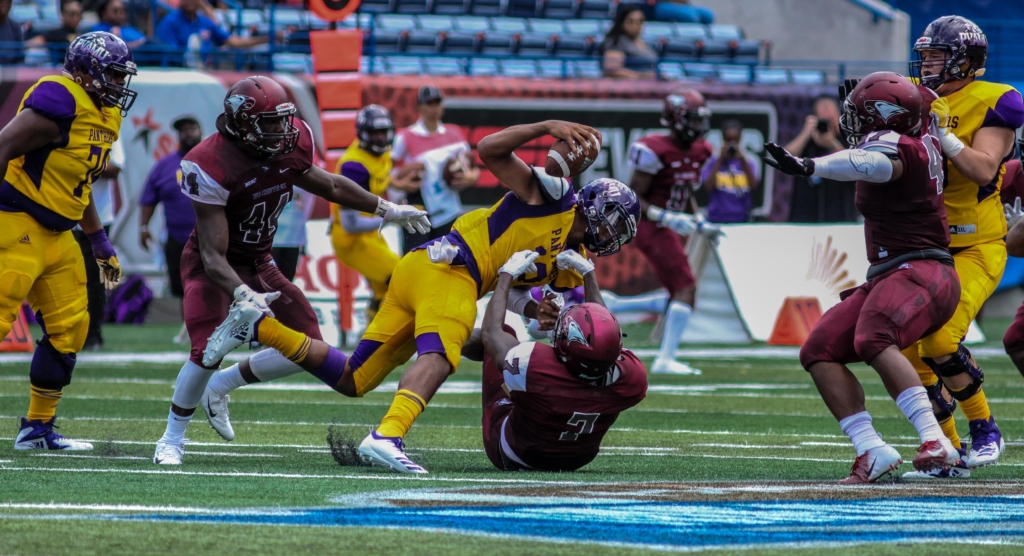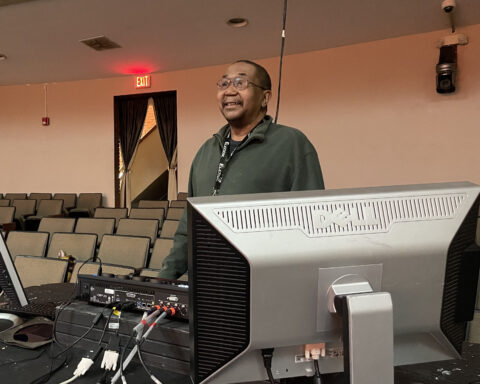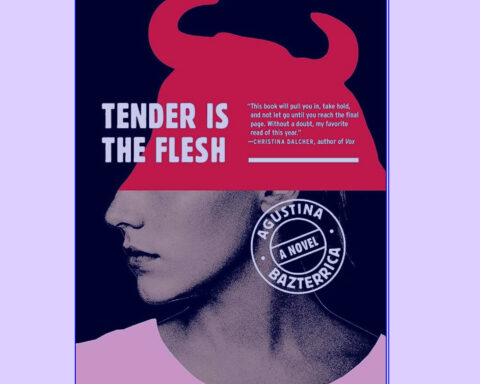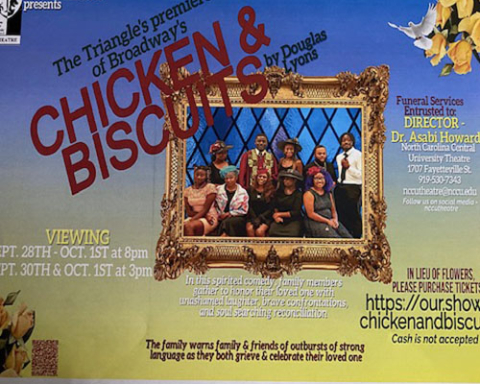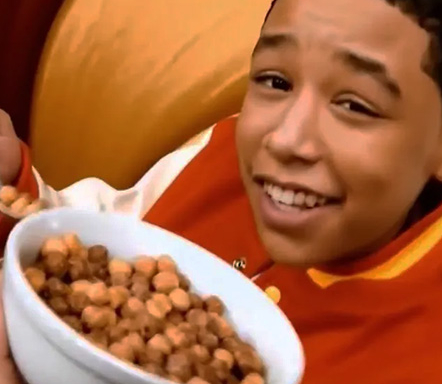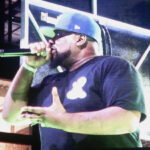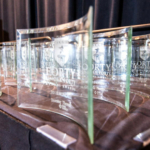The N.C. Central University Art Museum’s first exhibition of the 2018-19 academic year has very close ties to both the school and surrounding community.
From Aug. 26 to Nov. 9, NCCU alumnus Stephen Hayes’ exhibit “Identity and Economic Exploitation” will be shown on the campus he graduated from in 2006.
Hayes, who went on to leave his native Durham after graduation, receive a Master of Fine Arts from Savannah College of Art and Design (SCAD) and participate in multiple residencies and exhibitions along the eastern seaboard, used objects most would consider to be garbage to create art that challenges viewers to revisit their definition of human exploitation.
“My work deals with capitalism, consumerism and brainwashing and the idea how the black body is viewed into today’s media,” Hayes says.
Three major symbols that Hayes uses to discuss these ideologies are horses, chess pawn pieces and ears of corn.
The horse
One piece of Hayes’ artwork that most prominently features horses is “Fancy Legs.”
The large, framed work focuses on two black horses facing away from one another with connecting nooses around each of their necks. Their numerous legs are made out of carved wooden posts while lace-trim saddles adorn their backs.
“Both these horses are trying to outshine one another,” Hayes says, referencing the infamous Willie Lynch letter hoax on how to control slaves through infighting. “At the same time, they are choking each other off.”
The pawn
“In the game of chess, the pawn is disposable,” Hayes explains. “Today in the media, they have these pawns they put on pedestals. It doesn’t mean anything that these pawns are making all this money.”
“This is gold” was born out of a conversation the artist had had with a young man about the worth of his identity as opposed to the media’s opinion.
“I point at my skin to tell him this (blackness) is gold,” Hayes says. The piece, a black torso and arms extending out to point at the skin, is fairly straightforward in its conveyance of the message.
The corn
Hayes visualizes the corncob as vessels: the shape is reminiscent of slave ships with each kernel representing an individual. used to ship slaves.
As corn has been genetically modified for further usage outside of food, Hayes ponders how people are programmed today by society to focus on completing certain tasks.
How he works
“When I make stuff, I’m just a machine—I’m in the moment of making,” Hayes says of his artistic process. “I just want to make the product, and there it is. I don’t sit back and think about it. I just know I made it.”
To find materials, Hayes’ primary source is through re-purposing. Once he finds something that he deems useful for a future project, he lets it sit in his studio until an idea forms.
What he cannot find, he makes: some of the methods he’s used for create sections of completed pieces include carpentry, crocheting and welding.
Art as a struggle
“The hardest thing about this line of work is not knowing where the next dollar will come from.”
“There was a moment when I barely had anything, I was sleeping on the floor not having much,” Hayes says of his time in Atlanta. “I didn’t have cable or air conditioning or anything like that.”
At the time, Hayes had just finished “Cash Crop,” a series of sculptures that ended up being his first feature in the NCCU Art Museum back in 2011.
An interview about that series led to Hayes scoring an interview opportunity with CNN. Because he didn’t have the resources himself, Hayes drove to a nearby AT&T store and asked if the store’s TV channel could be changed.
“I sat there for 45 minutes watching CNN, waiting for my little moment to come,” he recalled.
Understanding where he came from, Hayes says his work is not meant to be exclusive.
“My work is for everybody,” Hayes says. “It’s about me and you having a conversation.”

